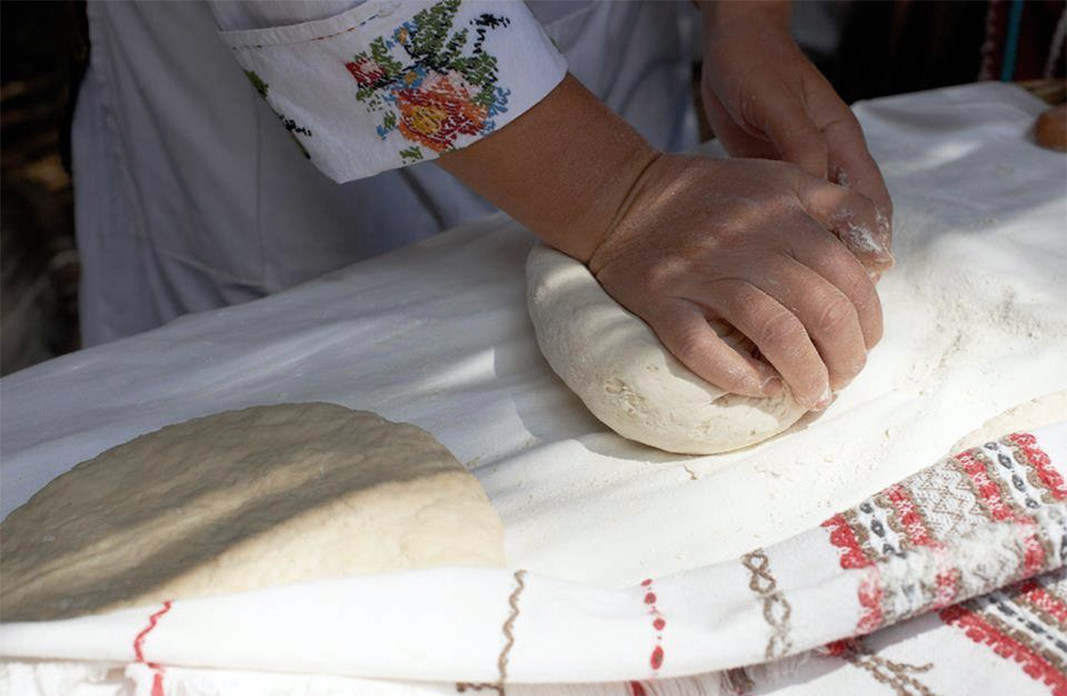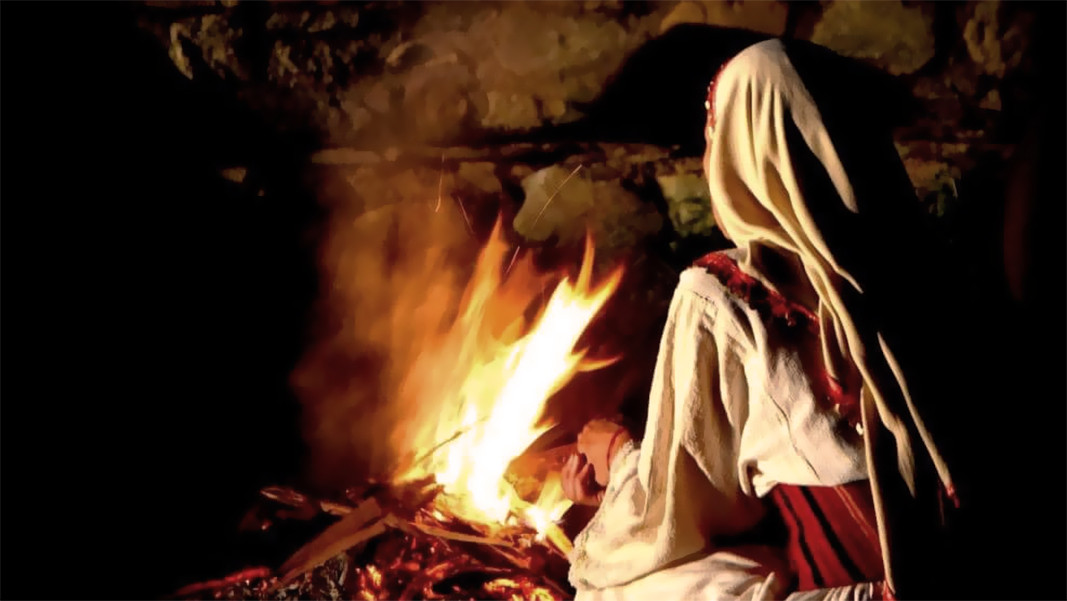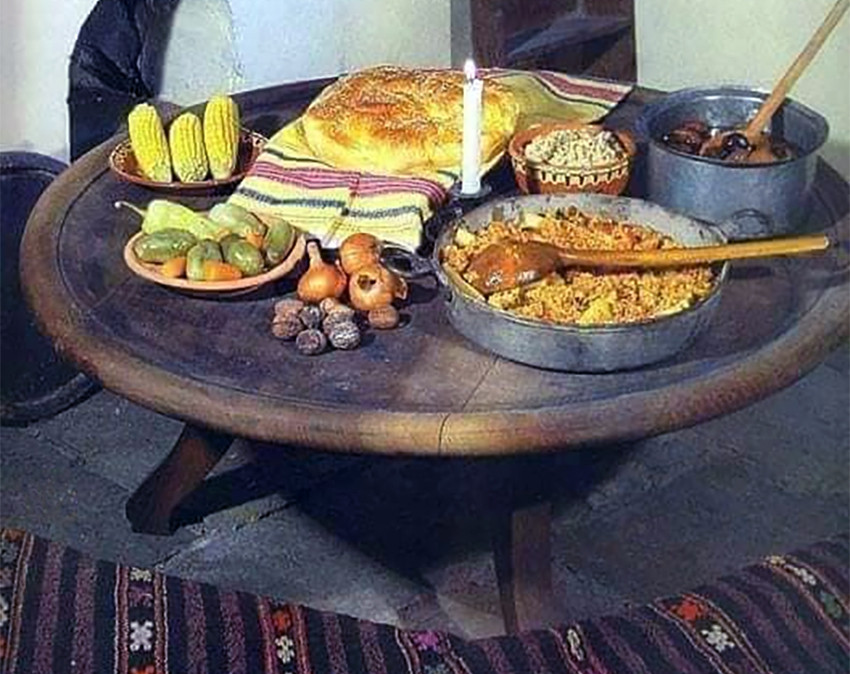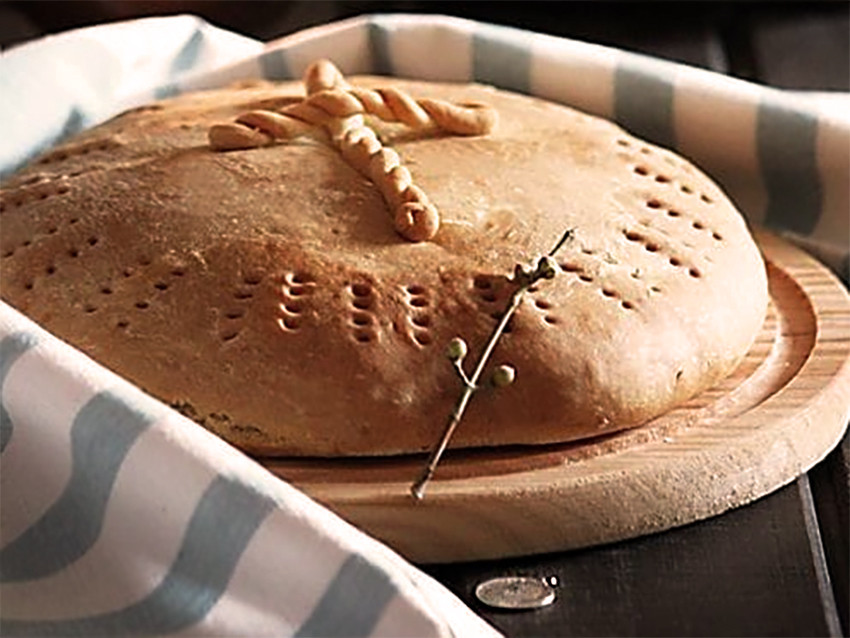Christmas Eve, once called Budnik, Little Christmas or Neyadka, was considered part of a dark, frightening period, charged with the potential to influence the entire upcoming year. For this reason, the night before Christmas was associated with predictions, prayers and warm wishes in anticipation of the new beginning.
Nowadays, holiday preparations mainly involve frantic shopping, choosing gifts, making hotel and restaurant reservations, etc. Our ancestors, however, followed strict rituals, filled with deep symbolism, in an attempt to earn blessings from higher powers for the well-being of their family and loved ones. In the past, the preparations for the Holy Night included strictly defined female and male duties, said ethnologist Dr. Anelia Ovnarska.

Women prepared the ritual food and the festive table, baked three types of ritual breads, etc. The man's work, on the other hand, was connected to securing the Yule log (Budnik) – a specially selected piece of wood, cut by the youngest man in the family in a ceremonial manner. He had to be careful not to let it touch the ground. The log was then taken to the house, anointed and used to light the festive hearth.

"Another male task is related to animal care and the preparation of the yard. There are interesting ritual moments from the past that are rarely seen today, or not seen at all, such as ''Threatening the fruit trees''- people would threaten to cut them down if they don't bear fruit. There is also a very interesting moment – the boys, teenagers from our perspective, would catch sparrows, and their grandmothers would roast or boil them the next day after the end of the strict fast", says Dr. Ovnarska.
People would invite the Lord or the Virgin Mary to descend from heaven and dine with the living at the festive table. The householders would leave an empty place at the table for their deceased relatives, for God or the Virgin Mary.

"In some parts of Bulgaria, like in the Shopluk region around the town of Radomir, when the dinner was being blessed with incense, people would go outside and the elders would shout: ''Come down, Dzherman, and dine!'' Dzherman is the personification of a higher power – the same one responsible for hailstorms during the summer. The whole ritual around the festive table and the preparation for this family feast is linked to future fertility and prosperous life and the appeasement of the supernatural to help in this direction", explains the ethnologist.
In the past, there were no Christmas trees, and unlike today, families did not exchange piles of gifts on the Holy Night. However, everyone would receive a brand new pair of knitted socks, and just before sitting down at the festive table, they had to wash their feet in order to put them on. The coin in the bread was also considered a blessing. However, the lucky one was expected to buy something for the family with the coin, such as salt. If another member of the family found the coin, the oldest person would immediately buy it back to keep the blessing in the family.

What’s left of this complex ritual and how has the spirit of Christmas Eve changed? According to Dr. Ovnarska, the first changes occurred after the Liberation with the emergence of industrial society. But not only:
''A significant imprint was left by the socialist regime, which banned this religion-oriented festivity. Since this lasted for a long period of time, festive moments connected to religion and faith began to fade away. I remember that December 24 was a working day. Mom would go to work and then rush home to make a pita bread so we could celebrate Christmas Eve, even under an atheist government. Fortunately, today there is a strong desire to restore the meaning of this holiday. However, our life is different today and the agrarian culture of the past no longer exists. That is why the holiday should be understood through family values – to preserve respect for the family, for the elders, and to seek knowledge of what was before", concluded Dr. Anelia Ovnarska.
Published and translated by Kostadin Atanasov
Photos: Dr. Anelia Ovnarska; archive
See also:The Philip Koutev National School of Folk Arts is not just any school - it is a talent laboratory. It is the first school not only in Bulgaria but in the Balkans for professional study of folklore. It is located in the heart of the beautiful town of..
Scientists from the Sorbonne will study the cultural heritage preserved in the Regional Ethnographic Open-Air Museum "Etar" , informs public broadcaster BNT. In March this year the French scientists together with experts of REOM "Etar" will study elements..
The day of St. Tryphon (1 February old style, 14 February new style) is celebrated by vine growers, falconers and gardeners in Bulgaria. Trifon Zarezan comes around with vine pruning and wine drinking St. Tryphon is believed to help..

+359 2 9336 661
